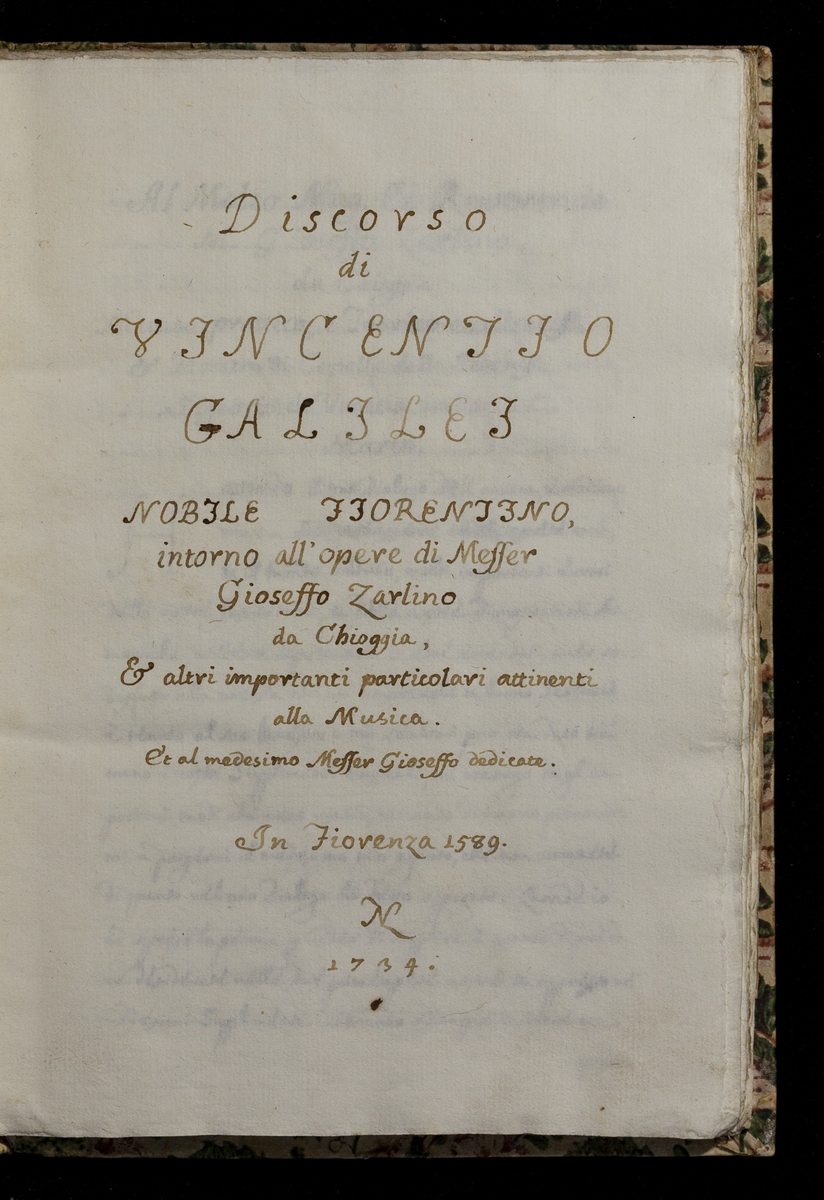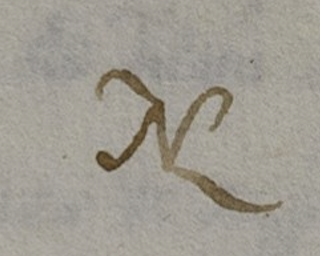Chicago, Newberry Library, Case MS 5127
Vincenzo Galilei
The Discourse of Vincenzo Galilei
Florence, 14 May 1735
Go to Transcription
Go to Manuscript page
Item fully digitized here.
The father of Galileo, Vincenzo Galilei (1520s-1591) was a skilled lutist, composer, and one of the most influential theorists of western music. He participated in the Bardi’s Camerata, the salon that established the theoretical basis that led to the birth of opera. As a theorist, he is famous for a heated debate with his master, Gioseffo Zarlino (1517-1590). In 1558, Zarlino published the Istituzioni armoniche, an influential treatise where he presented a modern theory on consonances which established the preeminence of polyphonic composition. Galilei responded with his pivotal Dialogo della musica antica et della moderna (1581), where he questioned his master’s interpretation of ancient Greek sources and at the same time advocated for a return to monody (i.e. the musical setting of a single vocal line with accompaniment). Zarlino reiterated his stances in his Sopplimenti musicali (1588). While Zarlino here demonstrated a deeper understanding of his sources, he nonetheless failed to fully address the accusations raised by Galilei (who is unnamed and referred to throughout the treatise merely as “a disciple”). The fourth and final act of their quarrel is precisely the Discorso intorno all’opere di Messer Gioseffo Zarlino da Chioggia (1589), of which the Newberry Library owns a manuscript dated 1734-35. The dedication to Zarlino himself, which is here reproduced and transcribed along with the frontispiece, belies the harsh resentment of both parties. To provide but one example of their feisty relationship, a few pages into the Discorso, Galilei recounts of how Zarlino managed to get rid of the first Venetian copies of his Dialogo by having a henchman threaten the owner of the bookstore selling them. Later, when Galilei made arrangements to have the Dialogo printed in Venice, Zarlino convinced the printer to hand over the text to him and held it for months, thus preventing its publication. Galilei sarcastically taunts his master, suggesting that Zarlino should have have come to his senses and published the stolen text as his own.
The Newberry copy contains these initials (cf. frontispiece):


It has been suggested that they might refer to a Natale Zarlino, descendant of Gioseffo and possibly author and owner of the manuscript.
Corsiva minuta e legata caratterizzata dallo slancio delle aste confronto del corpo piccolo delle lettere.
Da notare: la e con tratto mediano allungato verso l’alto (1r, r. 9: conoscere); la r diritta e divaricata (1r, r. 12: oltre); la s ridotta a un segno obliquo (14: maestro).